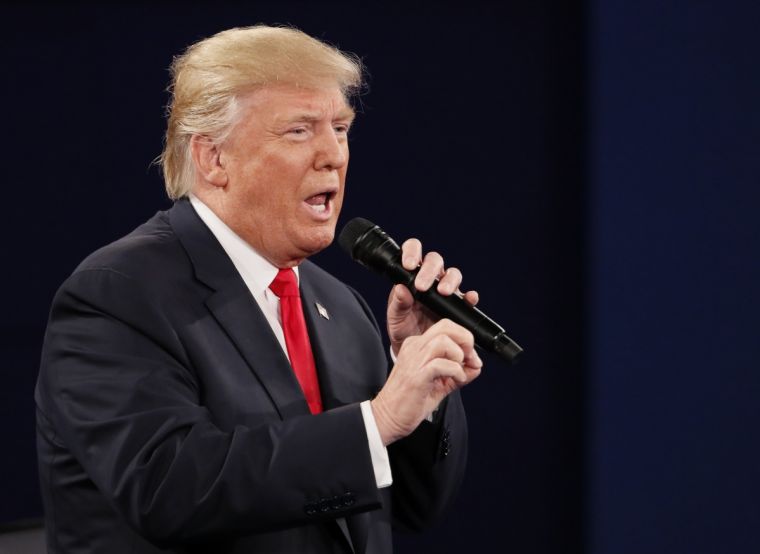Why Trump's Critics Are Also Wrong About Women

The release of a tape from 2005, in which US presidential nominee Donald Trump brags about groping women and trying to have sex with a married woman, has sparked a rush to the exit from some high-profile supporters.
But some of the statements made me wonder if women still only matter in relation to the men in their lives. Former Presidential candidate Jeb Bush tweeted: "As the grandfather of two precious girls, I find that no apology can excuse away Donald Trump's reprehensible comments degrading women." Mitt Romney, the Republican Presidential nominee in 2012, said that Trump's comments "demean our wives and daughters and corrupt America's face to the world".
They're right. Trump's comments were vile and Romney is not the first to point out that some of the actions the candidate describes in the recording amount to sexual assault. But why is the condemnation contingent on their position as fathers and grandfathers? Why is the dehumanisation of women interpreted only in relation to men?
The implication is that the only way the issue is visible is when it touches men, but it is a pervasive problem. In online conversations following the release of the tape many women have talked openly about their experiences of sexual assault. Teen Vogue profiled some of these stories and the culture that makes it permissible, the sort of "boys will be boys" excuse that has been used to defend Trump. Some of his supporters have called it "locker room talk." Nigel Farage, who shared a platform with him at the Republican National Convention, described Trump's words as "ugly" but "what men do".
You don't have to be a father or a husband to be disgusted or outraged by what Trump has said and done or by what he and his supporters assume is "manly" behaviour. It's simply a matter of principle and decency.
What's baffling is that this incident should be the straw that breaks the camel's back for some of Trump's supporters. He has, among many other things, accused Mexicans of being rapists, advocated banning Muslims from America and mocked a disabled reporter.
Why weren't these attacks condemned as a matter of principle, or even simply because Muslims, the disabled, ethnic minorities and the other groups Trump has vilified are also members of our families, our colleagues and friends? All indications are that despite everything, Trump retains some support from high-profile Christian leaders. Given that we are called to love our neighbour, it seems that we may need to rethink how wide we cast that net.
In light of all this, I was not surprised by what I heard on the tape. What struck me, though, was the laughter of the other man with him, presenter Billy Bush. I felt the same unease that I do watching footage of Trump's rallies and hearing the roaring crowd cheering for him.
It's easy to point the finger at Trump. He contributes to a toxic political environment, but he is also riding a populist wave. Far too many of us are willing to see other people's humanity as conditional, the boundaries of which are limited by our personal prejudices. But God's love for humanity and exhortation to love our neighbour is so much bigger than that.











